- News
- Reviews
- Bikes
- Accessories
- Accessories - misc
- Computer mounts
- Bags
- Bar ends
- Bike bags & cases
- Bottle cages
- Bottles
- Cameras
- Car racks
- Child seats
- Computers
- Glasses
- GPS units
- Helmets
- Lights - front
- Lights - rear
- Lights - sets
- Locks
- Mirrors
- Mudguards
- Racks
- Pumps & CO2 inflators
- Puncture kits
- Reflectives
- Smart watches
- Stands and racks
- Trailers
- Clothing
- Components
- Bar tape & grips
- Bottom brackets
- Brake & gear cables
- Brake & STI levers
- Brake pads & spares
- Brakes
- Cassettes & freewheels
- Chains
- Chainsets & chainrings
- Derailleurs - front
- Derailleurs - rear
- Forks
- Gear levers & shifters
- Groupsets
- Handlebars & extensions
- Headsets
- Hubs
- Inner tubes
- Pedals
- Quick releases & skewers
- Saddles
- Seatposts
- Stems
- Wheels
- Tyres
- Health, fitness and nutrition
- Tools and workshop
- Miscellaneous
- Tubeless valves
- Buyers Guides
- Features
- Forum
- Recommends
- Podcast
BUYER'S GUIDE
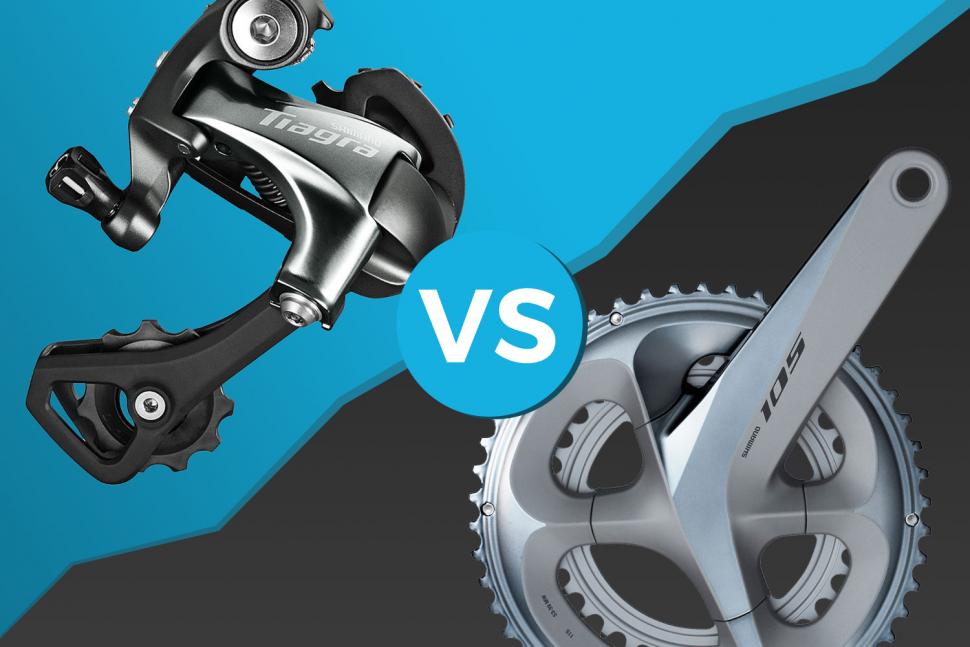 headtohead-Shimano-105-vs-Tiagra-Sept-2018
headtohead-Shimano-105-vs-Tiagra-Sept-2018Shimano Tiagra v Shimano 105 R7000 — see which popular groupset is best for you
If you’re choosing between Shimano Tiagra and Shimano 105 – either fitted to a complete bike or as an upgrade on an existing bike – here’s everything you need to know to make the right decision.
-
The biggest difference between Shimano Tiagra and Shimano 105 is that Tiagra has 10 sprockets on the rear wheel, 105 has 11 for closer-ratio gearing
-
Both Shimano Tiagra and Shimano 105 use the same ratio of gear cable pull to rear derailleur movement, so you can fit a 105 derailleur in Tiagra system if you want to
-
While bikes with Shimano Tiagra are usually substantially cheaper than those equipped with 105, the margin between the cost of components is often a lot smaller
-
Tiagra is the highest-grade Shimano groupset that still offers a triple chainset for fans of super-wide-range gear systems
-
Overall, a Shimano Tiagra groupset is quite a bit heavier than a 105 groupset, but almost 200g of the difference is in the chainset
-
Want to know which 11-speed groupset to go for? Check out our comparison of Shimano 105 v Shimano Ultegra
A groupset is a component manufacturer’s collection of mechanical parts, usually covering the derailleurs, shifters, brakes, chainset, bottom bracket, cassette and chain. Brands group these parts into various different levels.
If you want to know more about what a groupset is, check out our beginner’s guide.
Shimano offers six road groupsets. Starting at the top these are:
• Dura-Ace
• Ultegra
• 105
• Tiagra
• Sora
• Claris
Plus, Dura-Ace and Ultegra are available with Di2 electronic shifting, and Dura-Ace, Ultegra and 105 are also available with hydraulic disc brakes, and Shimano offers both hydraulic and cable discs for Tiagra
The recommended retail price of a complete Shimano Tiagra groupset (chainset, shifters, derailleurs, chain, cassette, brakes, bottom bracket) is £500 or £450, depending which retailer you choose to believe. A Shimano 105 R7000 groupset is nominally £596. That’s a difference of £96-£146.
However, both groupsets are widely available heavily discounted. You can pick up a Tiagra group for about £300, and 105 R7000 for as little as £400, though cheap deals like that usually don't offer the full range of chainring, cassette and crank length options.
Read more: Complete guide to Shimano groupsets
The biggest difference between the groupsets is that 105 – which is the most popular groupset in the world, according to Shimano – is 11-speed (there are 11 sprockets on the cassette) whereas Tiagra is 10-speed.
Tiagra is offered with both a double chainset (there are two chainrings) and a triple chainset (there are three chainrings) whereas 105 comes as a double only.
A number of technologies have filtered down to 105 R7000 from the more expensive Ultegra and Dura-Ace groups and Tiagra components are a little heavier. As ever, you pay more for lighter weight.
Read our full Shimano 105 R7000 groupset review.
Read our full Shimano Tiagra 4700 groupset review.
Dual control levers (mechanical)
| Weight | RRP | Online price | |
|---|---|---|---|
| Tiagra | 493g (pair) | £224.99 | £157.50 |
| 105 | 476g (pair) | £214.99 | £214.99 |
The main difference between the dual control levers is that Tiagra (below) is a 10-speed system and 105 is 11-speed.
In both cases the bracket is made from GFRP (glass-fibre reinforced plastic), the main lever is aluminium, and you get screw-operated reach adjustment to bring the levers closer to the handlebar for smaller hands.
Gear shifting on the Shimano 105 R7000 group is light and snappy, a significant improvement on the previous 105 iteration. Shimano has captured the very light lever action of Ultegra and Dura-Ace and brought it down to a cheaper price.
Tiagra has cables that are routed underneath the handlebar tape like the higher level Shimano groupsets, a feature that was a long time coming to the budget groupset.
When we reviewed Tiagra we said, “Shift feel is perhaps a little heavier than Dura-Ace or Ultegra, but that's an unfair criticism given the huge price difference.”
Unlike 105, Tiagra is available with a triple chainset (with three chainrings rather than two, see below). If you want to go down that route you’ll need to buy the compatible dual control levers.
Dual pivot brakes
| Weight | RRP | Typical price | |
|---|---|---|---|
| Tiagra | 360g (pair) | £62.98 (pair) | £39.98 (pair) |
| 105 | 388g (pair) | £95.98 (pair) | £73.98-£87.98 (pair) |
One of the biggest differences between 105 and Tiagra is the braking performance.
Shimano calls its latest calliper design SLR-EV Dual Pivot and this is now found on 105 (above), Ultegra and Dura-Ace. The new symmetrical twin pivot design equalises the braking forces through each arm for better control and power.
Slowing rather than stopping can be achieved with just a couple of fingers applying pressure to the lever and it's easy to avoid locking a wheel. The brake pad compound feels a little more grippy than the previous version in both wet and dry conditions.
The latest Tiagra brakes (above) do provide more stopping ability than before but they aren’t a patch on 105. The brakes will certainly stop you in a hurry, they're just lacking in feel and feedback through the levers.
The one-piece brake blocks also exhibit some flex, and changing them isn't as simple as swapping a brake pad in more expensive cartridge brakes such as those found on 105 and Ultegra.
Shimano says both 105 and Tiagra have room for tyres up to 28mm wide. However, the latest 105 R7000 brakes have slightly more drop (the distance from the mounting bolt to the brake pads) than before: 51mm v 49mm. That implies you should be able to run 30mm tyres with the right frame.
105 is also available in a direct mount option (you need to have a compatible frame and fork) where the brake arms bolt straight on to the frame/fork rather than via a central bolt. There is no Tiagra direct mount option.
Disc brakes
| Weight | RRP | Online price | |
|---|---|---|---|
| Tiagra hydraulic | NA | £469.98 | £375.98 |
| 105 | NA | £539.98 | £539.98 |
The 105 hydraulic STI units for disc brakes are 11-speed, as you'd expect, while the Tiagra are 10-speed. The new 105 R7000 STI units are considerably streamlined compared to both their predecessors and the Tiagra versions.
Riders with small hands should definitely look to the R7000 brakes. The ST-R7025 levers sit closer to the handlebar than the standard ST-R7020 levers.
We've been impressed with the Tiagra hydraulic discs. They were fitted to the Genesis Datum 10 that Mike Stead tested in mid-2017, and he commented: "I'm rapidly coming to the conclusion that Shimano can do no wrong brake-wise, the performance being consistently excellent across all specs from base model non-series to Dura-Ace. Stopping power is enhanced by the use of a 160mm rotor up front, meaning there's never any need for more than two fingers on the levers, even with hands on the hoods let alone in the drops." The Tiagra brakes specifically boosted the Datum 10's performance downhill: "the wide tyres and hydraulic brakes give you the confidence to bomb rough-tarmac descents without fear."
Chainset
| Weight | RRP | Typical price | |
|---|---|---|---|
| Tiagra | 910g (50-34 tooth) | £114.99 | £99.99 |
| 105 | 716g (50-34 tooth) | £154.99 | £120.99 |
Shimano Tiagra (below) and 105 each feature chainsets with aluminium crank arms and a steel axle. They both use a four-arm spider with uneven spacing between those arms, the idea being to provide strength and stiffness where it’s needed while keeping the weight low.
The outer ring in both cases is aluminium/GFRP. Again, the design is intended to provide stiffness.
Both 105 and Tiagra are available in 165mm, 170mm, 172.5mm and 175mm crank lengths. Diminutive riders can also choose a 160mm 105 R7000 crankset
Chainring options are slightly different. With 105 you can decide between 53-39, 52-36 and 50-34 tooth setups but Tiagra lacks the traditional, racing-orientated 53-39 option.
On the other hand, Tiagra is available in a triple chainset configuration: 50-39-30. You’ll need a triple-compatible left hand shifter and front derailleur as well.
All 105 (below) and Tiagra chainsets use the same bolt circle diameter (BCD, 110mm) so it’s easy to swap from one size of chainring to another.
As commenters have pointed out, the 105 chainset is significantly lighter than the Tiagra, but is reported to work fine in an otherwise Tiagra set up, so if you have a Tiagra bike, a 105 is a worthwhile upgrade.
Front derailleur
| Weight | RRP | Typical price | |
|---|---|---|---|
| Tiagra | 106g | £35.99 | £17.99 |
| 105 | 109g | £38.99 | £29.00 |
The 105 (below) and Tiagra front derailleurs are made from the same materials – aluminium with a chrome plated stainless steel chain guide – and each comes in braze on and band on varieties to suit different frames.
The differences are that the 105 front derailleur is suitable for 11-speed use and a large chainring of between 46 and 53 teeth while the Tiagra one (below) is 10-speed compatible and takes a large chainring of between 46 and 52 teeth. (If you want to use a chainring larger than 53-teeth, Shimano says you have to go all the way up to a top level Dura-Ace front derailleur). You can also get a Tiagra front derailleur that’s suitable for use with a triple chainset.
The two derailleurs have very different appearance because the 105 R7000 uses what Shimano calls a "compact toggle design". This design — previously seen on Dura-Ace and Ultegra — increases tyre clearance and provides a cable tension adjustment screw in the body of the derailleur.
We found the Tiagra front derailleur to shift cleanly, smoothly and quietly, even under load.
Rear derailleur
| Weight | RRP | Typical price | |
|---|---|---|---|
| Tiagra | 277g (long cage) | £35.99 | £32.00 |
| 105 | 220g (short cage), 227g (long cage) | £51.99 | £48.00 |
Following the design of the Ultegra R8000 rear derailleur launched the year before, the 105 R7000 is a radical departure from previous 105 derailleurs and looks very different from the Tiagra unit. The 105 R7000 derailleur uses the Shadow design Shimano originally developed for mountain bikes to tuck the derailleur in to the bike and increase the largest sprocket it can handle.
The Tiagra version is designed to be used as part of a 10-speed setup while the 105 version is designed for 11-speed. Each is made with a bracket body, plate body and plates made from aluminium.
Both Tiagra and 105 rear derailleurs come in short cage and long cage versions for use with different cassettes. The short-cage Tiagra derailleur can handle up to a 28-tooth large sprocket, while the 105 R7000 equivalent can shift up to a 30-toother. The long cage versions will both handle a 34-tooth sprocket, though we've found the long-cage version of the 105 R7000 will actually shift all the way to a 40-tooth chainring without any hassle at all.
When we reviewed Tiagra we said, “Shimano says it has revised the cable pitch on the rear derailleur (above), claiming it now offers 'precise and long-lasting shifting performance'. It's certainly living up to those claims compared with old Tiagra.”
Cassette
| Weight | RRP | Typical price | |
|---|---|---|---|
| Tiagra | 308g (12-28) | £34.99 | £37.00 |
| 105 | 284g (11-28) | £51.99 | £46.80 - £52.20 |
The Tiagra and 105 cassettes both feature nickel plated steel sprockets although the 105 version has an a spider arm and a lockring made from anodised aluminium and it’s considerably lighter. The biggest difference, though, is that a 105 cassette is 11-speed while a Tiagra one is 10-speed.
105 is available in 11-25, 11-32 and 12-25 tooth options, plus a newly-introduced 11-34 that will fit on a 10-speed wheel, while Tiagra comes in 11-25, 12-28, 11-32 and 11-34 tooth.
When he reviewed the previous Shimano 105 Stu said, “Resistance to wear has always been a reason for me to buy 105 sprockets even with an Ultegra or Dura-Ace equipped bike, and that remains here as the nickel-plated sprockets are standing up to pretty much anything you can throw at it.
“The shifting is sharp and those computer designed tooth profiles must be doing their job as even under load there were no missed shifts.”
Tiagra 10-speed cassettes are currently very hard to find. The link above goes to an 11-25 cassette. If you need the opposite end of the scale, you can use an SLX 11-34 10-speed for £44.00.
Chain
| Weight | RRP | Typical price | |
|---|---|---|---|
| Tiagra | 273g (114 links) | £22.99 | £17.18 |
| 105 | 257g (114 links) | £32.99 | £22.55 |
The 105 chain (below) is 11-speed rather than 10-speed, so it’s narrower and a little lighter than the Tiagra version.
They both run very quietly thanks to Sil-Tec (PTFE) coated links.
Bottom bracket
| Weight | RRP | Typical price | |
|---|---|---|---|
| Tiagra | 92g (threaded), 71g (press-fit) | £20.99 | £19.99 |
| 105 | 77g (threaded), 69g (press-fit) | £32.99 | £23.99 |
The Tiagra press-fit bottom bracket is nearly as light as the 105 version. Although the threaded model is quite a bit heavier than the 105 one (above) in percentage terms, you’re still only talking about 15g, and that’s negligible considering the overall weight of your bike. That said, for the tiny increment in typical price, the BB-R60 (105) is also used in the Ultegra groupset and has an excellent reputation for durability.
Conclusion
Tiagra is a really impressive groupset. It does everything you want from a mid-level road bike with only a few minor quibbles. The biggest decision is whether you're really fussed about having the 11-speed of Shimano's more expensive 105.
If you go for Tiagra you can’t upgrade to 105 one component at a time because 10-speed and 11-speed drivetrain components aren’t interchangeable. You’d have to upgrade most of the groupset components at once for optimum performance. As well as an 11-speed cassette having an extra sprocket, the spacing between those sprockets is smaller, an 11-speed chain is narrower than a 10-speed chain, and, obviously, an 11-speed shifter has one more position than a 10-speed one. However, you should be able to put a 105 rear derailleur in a Tiagra system as the cable pull ratios are the same, but to go to 11-speed you're eventually going to need the big bang of new sprockets, chain and shifters.
If you go for 105, on the other hand, you could swap to Ultegra or Dura-Ace gradually as each component wears out. That might be attractive, but only if you’re realistically likely to do this.
If you want really low gears, 105 is the better choice. In theory both systems will handle a 34-tooth largest sprocket, but while we've heard of people persuading Tiagra to cope with a 36-tooth, we have direct experience of a long-arm 105 mech cheerfully shifting to a 40-tooth sprocket.
The other major difference between the two groupsets is that the 105 brakes are considerably better than Tiagra ones. They are a real highlight both in terms of all-out power and fingertip control.
Tiagra offers excellent value for money but 105 is certainly the better groupset and we’d recommend going for it if your funds allow because of the better brakes, the small weight saving and the upgrade to 11-speed.
Explore the complete archive of reviews of groupsets on road.cc
About road.cc Buyer's Guides
The aim of road.cc buyer's guides is to give you the most, authoritative, objective and up-to-date buying advice. We continuously update and republish our guides, checking prices, availability and looking for the best deals.
Our guides include links to websites where you can buy the featured products. Like most sites we make a small amount of money if you buy something after clicking on one of those links. We want you to be happy with what you buy, so we only include a product if we think it's one of the best of its kind.
As far as possible that means recommending equipment that we have actually reviewed, but we also include products that are popular, highly-regarded benchmarks in their categories.
Here's some more information on how road.cc makes money.
You can also find further guides on our sister sites off.road.cc and ebiketips.
road.cc buyer's guides are maintained by the road.cc tech team. Email us with comments, corrections or queries.
Mat has been in cycling media since 1996, on titles including BikeRadar, Total Bike, Total Mountain Bike, What Mountain Bike and Mountain Biking UK, and he has been editor of 220 Triathlon and Cycling Plus. Mat has been road.cc technical editor for over a decade, testing bikes, fettling the latest kit, and trying out the most up-to-the-minute clothing. He has won his category in Ironman UK 70.3 and finished on the podium in both marathons he has run. Mat is a Cambridge graduate who did a post-grad in magazine journalism, and he is a winner of the Cycling Media Award for Specialist Online Writer. Now over 50, he's riding road and gravel bikes most days for fun and fitness rather than training for competitions.
Latest Comments
- chrisonabike 3 sec ago
Not a local so not sure, but articles (inc. in road.cc in 2022) suggest that literally nothing has changed since then (except it was Ryan reporting...
- stonojnr 8 min 19 sec ago
Somehow I doubt a permanent ban would affect this individuals choices to drive anyway, given he's already been convicted of driving whilst banned....
- Advanced Driver 57 min 6 sec ago
What a foul mouthed and unpleasant post! What business, Muddy Ford, is it of yours - or any one else - if residents of those properties wish to...
- lesterama 1 hour 26 min ago
There's a big difference between 54/11 and 56/10. Just sayin'.
- Dr Watson 1 hour 40 min ago
I’ll be playing all year again if it’s on. Pleeease.
- hawkinspeter 2 hours 12 min ago
Well, if it's broken in a very specific and limited way, then they're probably fine with it.
- Hirsute 2 hours 35 min ago
I'm getting my tabard, shoe mot, eyesight test, hi viz, insurance so that as a pedestrian I can comment on road use and whether drivers should...
- chrisonabike 5 hours 21 min ago
It would have to be the police's cars... although stealing bikes from a police station does seem to fall in to the "low hanging fruit" bracket for...
- Hirsute 6 hours 34 min ago
13 vehicles crashed through my wall. https://www.bbc.co.uk/news/articles/clyvegw54e5o Time for some proper bollards!
- chrisonabike 6 hours 37 min ago
Perhaps it was one of those terrible military "accidents" where bio-weapons were released and went further than intended or lingered for too long? ...
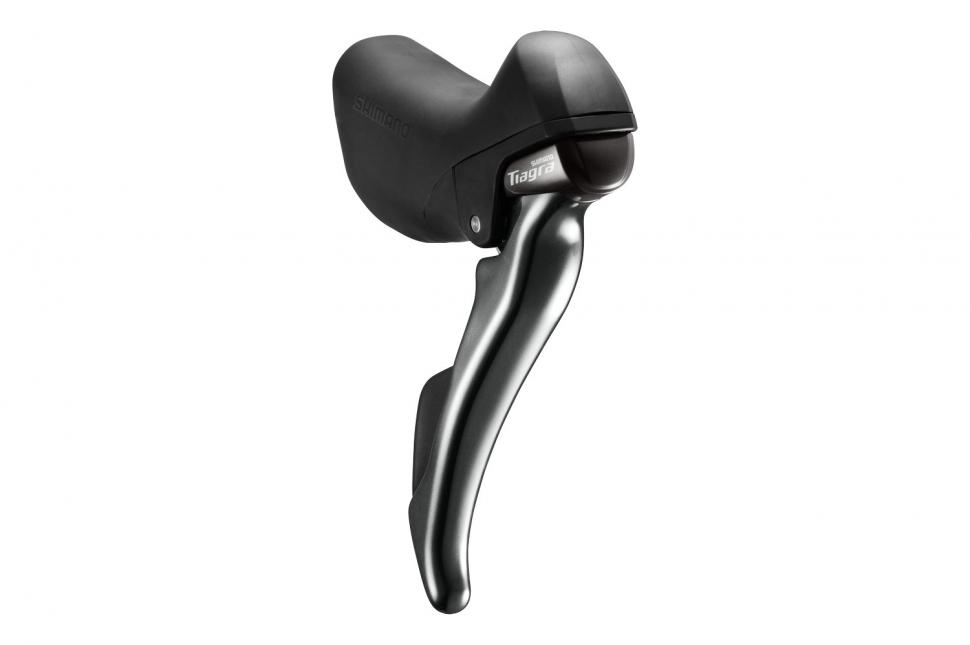
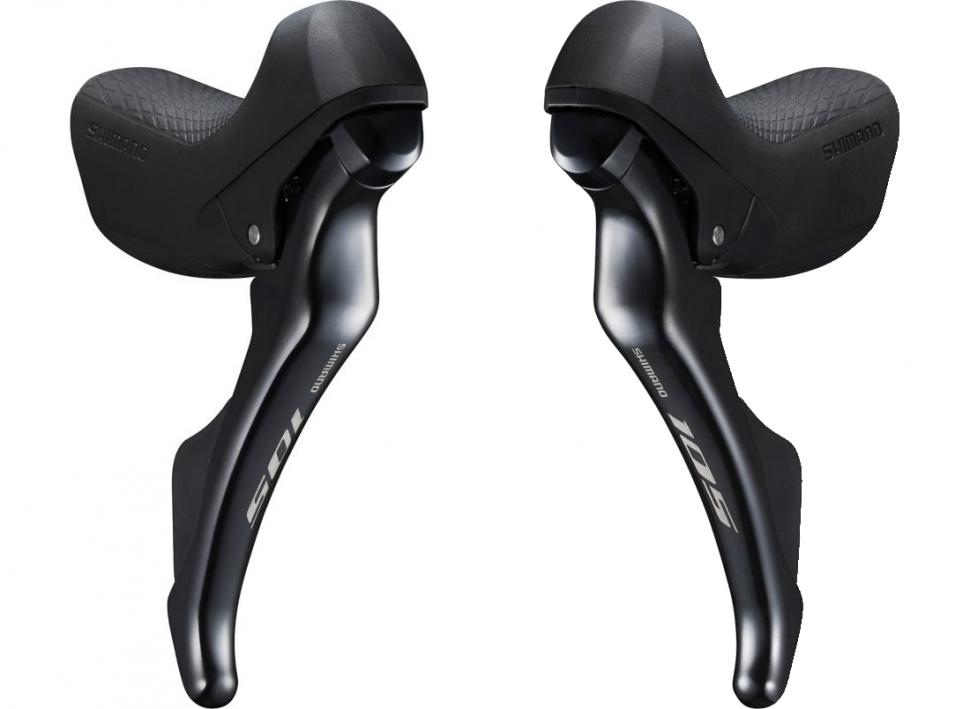
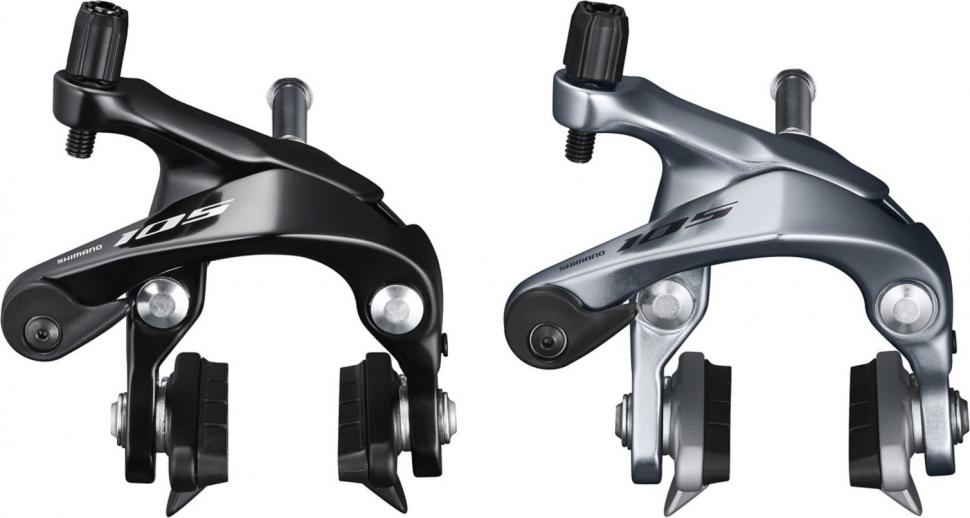
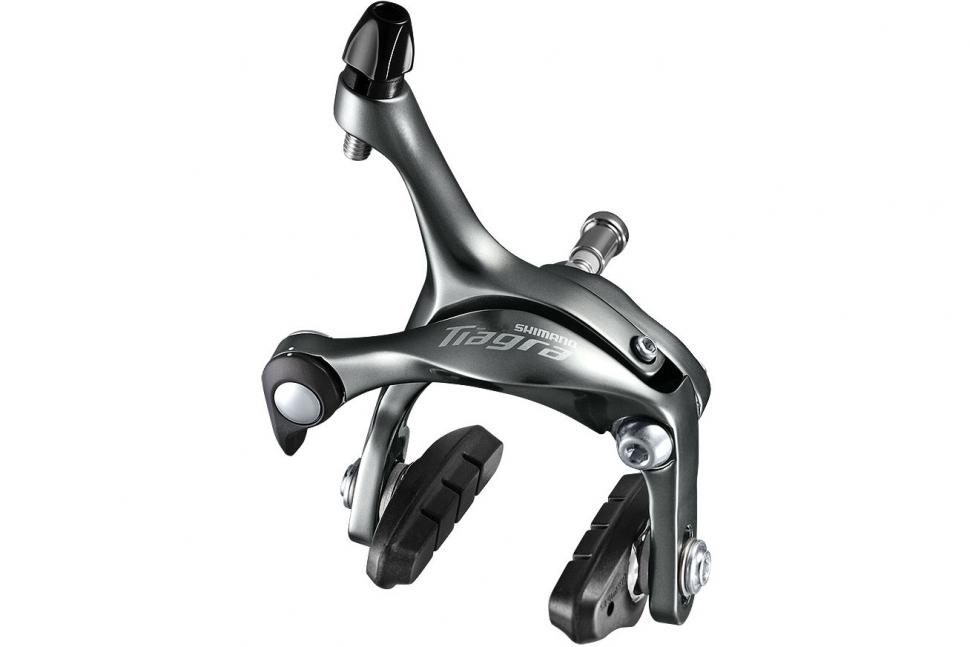
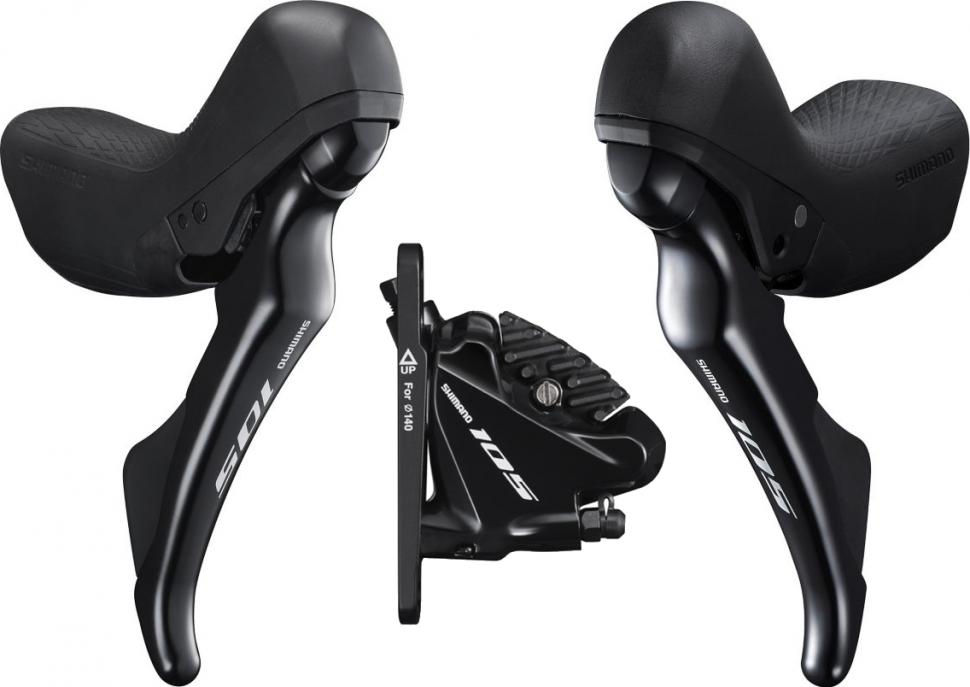
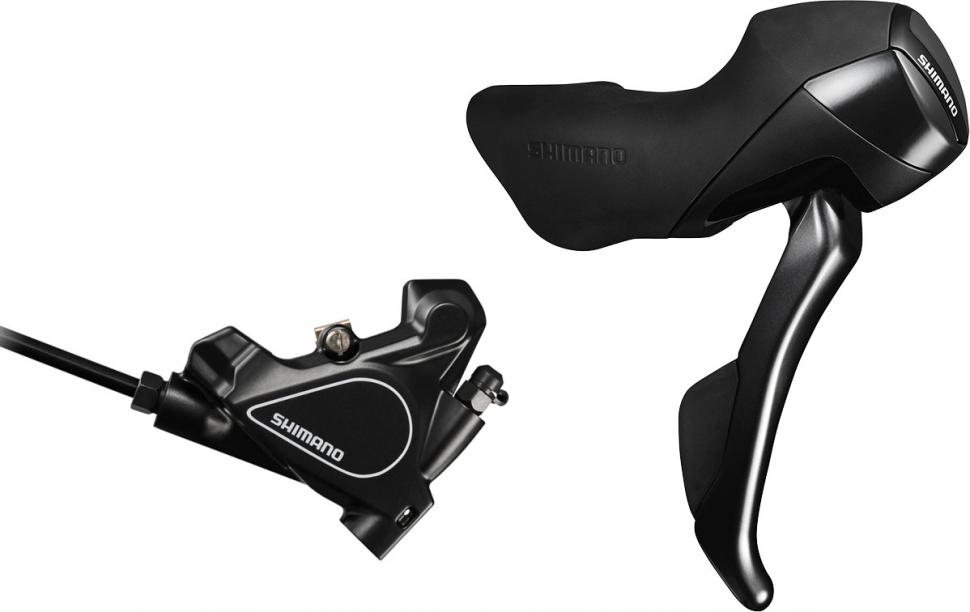
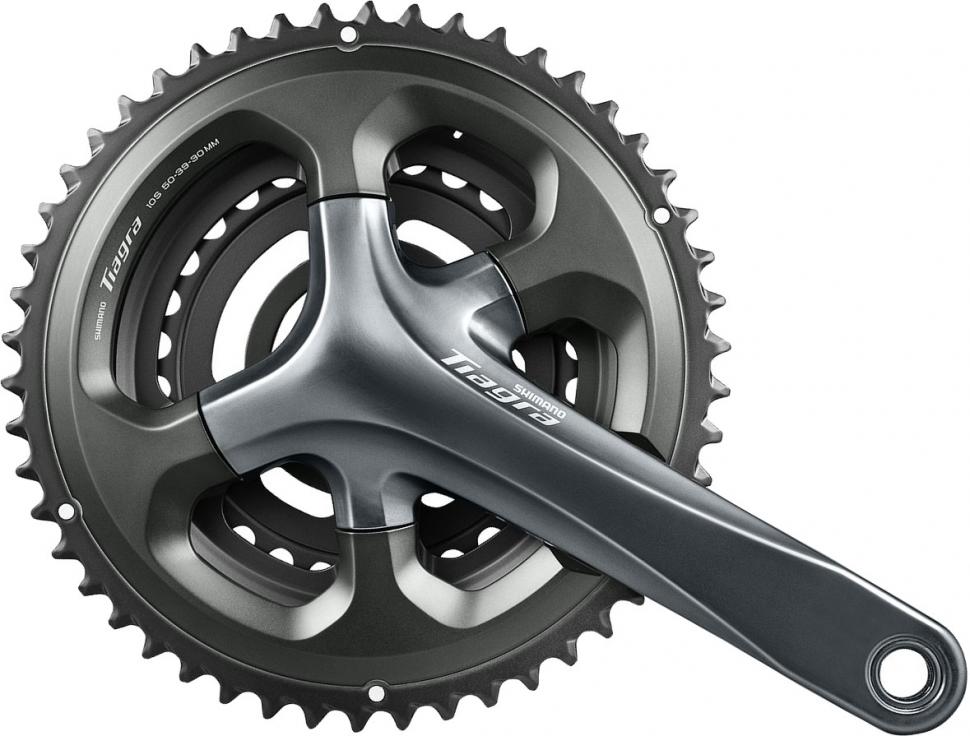
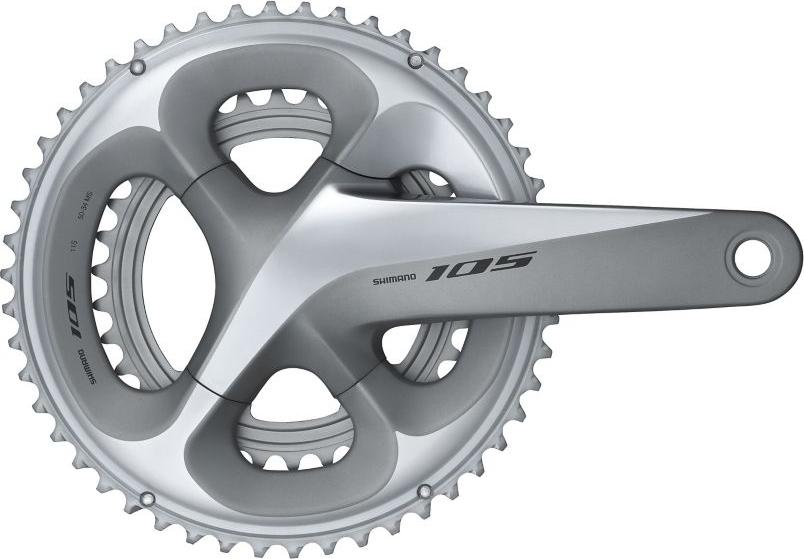
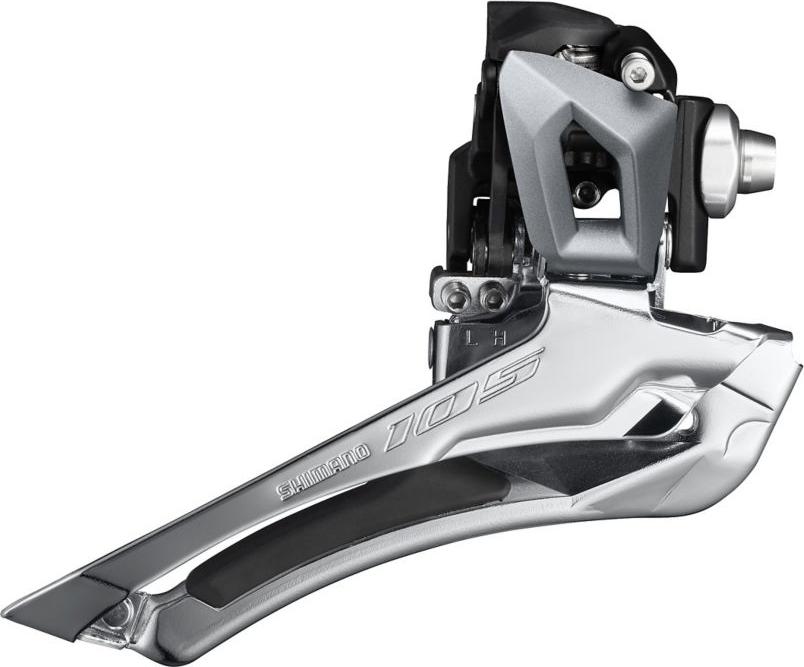
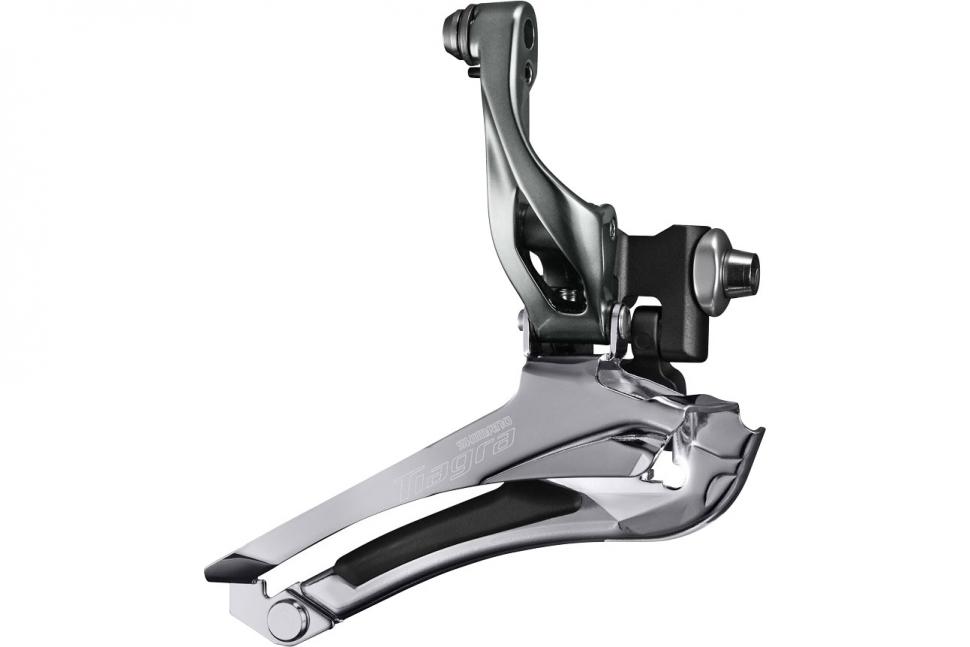
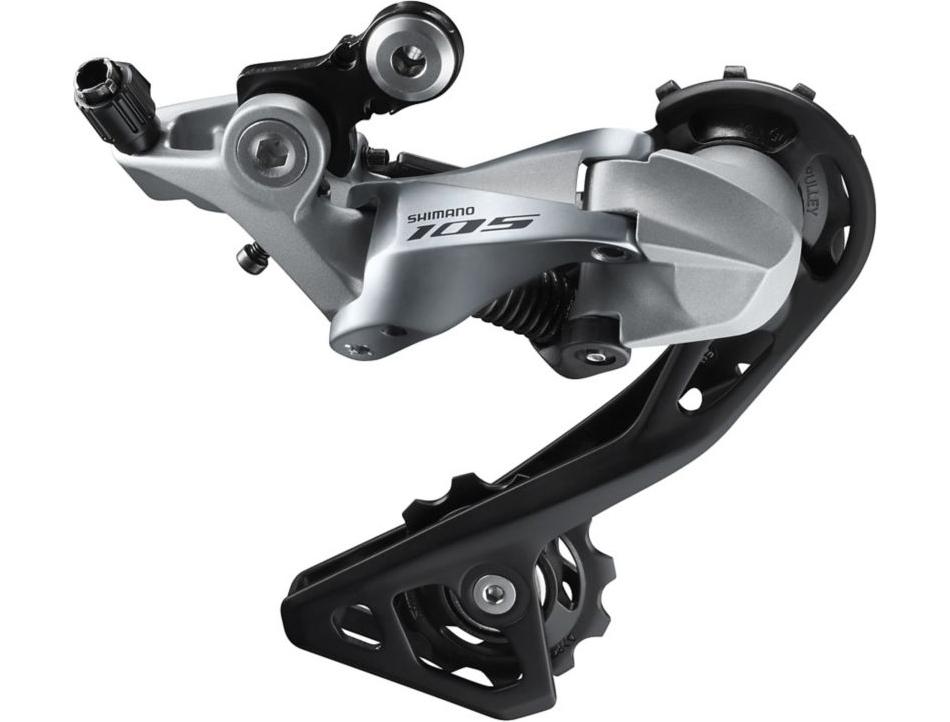
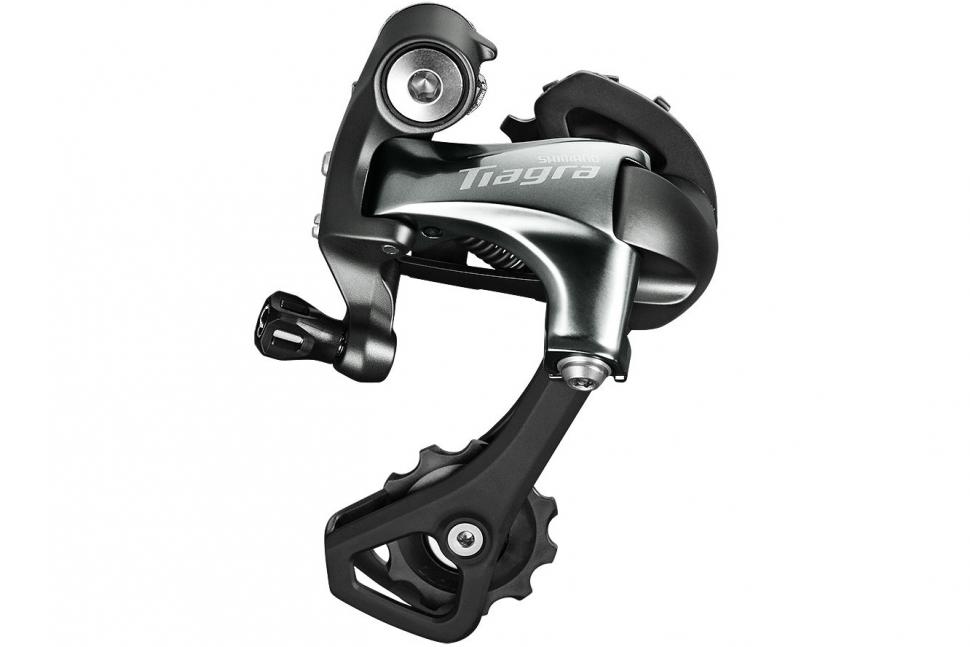
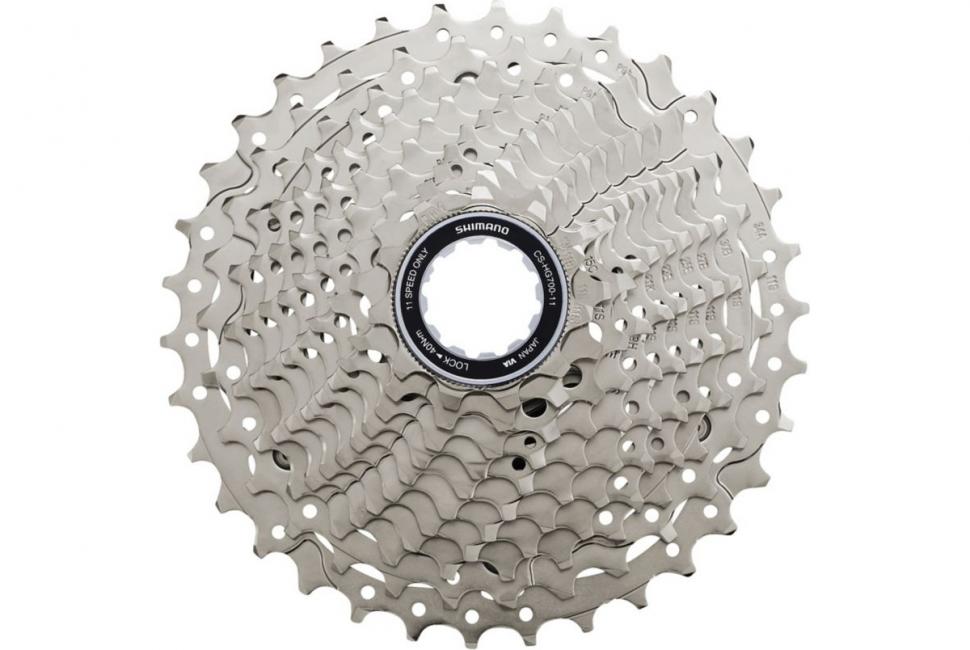
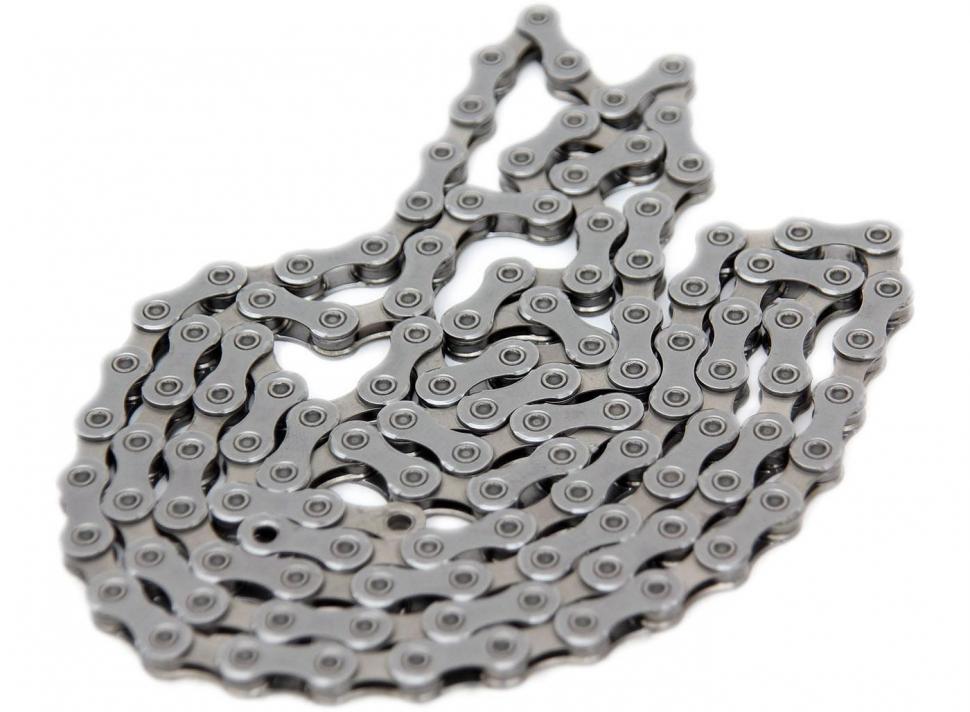

Add new comment
44 comments
"
Phase 2 paired a 9 spd Alivio MTB mech. with a 34 tooth cassette. Not really a success but that may have been down to a cable kink problem.
Phase 3 swapped the Alivio for a Deore XT mech. which seems to work much more smoothly. (Not actually ridden it further than round the block yet.)
"
I had a lot of problems with my 5700/9sp XT mech setup until I was shown how to attach the rear mech cable to the XT mech. It needs to be attached via the upper side of the pinch bolt on the mech, rather than below the bolt as intended if running mtb shifters.
When the shifters give up the ghost, you might consider using a regular road groupset with a Wolftooth Roadlink RD hanger. That'll cope with up to a 40t cassette.
FWIW you can fit cartridge brakes to the Tiagra calipers.
Agree with the comments above - You can mix the Ten Speed Tiagra 4700 but add a 105 5800 Chainset if you want.
Also New Tiagra 4700 is much crisper than old 105 5700, plus its got the adjustment of the levers, whereas 105 5700 did not.
This might be an important consideration if you are considering possibly buying a 2nd hand bike because its got 105 5700. If the price difference between it, and a new bike with Tiagra 4700 is minimal. Buy the new bike with Tiagra instead. It will be better.
Not sure about that Mr Steffer. My current 105 (5700) has the usual plastic shims that take up lever travel. They are a different shape from the Tiagra's but work just as well.
I have new Tiagra on my Datum, 5600 105 on another bike and 6400 Ultegra on another. All very good, but new Tiagra is better than older 105 - hoods are nicer shape, lighter shifting.
The only rubbish thing about the new Tiagra is the weight of that chainset - it weighs a ton. It doesn't help the feel of the bike at all and it's around 200gm heavier than a cheap chainset like a miche, or even the old-school square-taper triples.
If I wanted a triple these days then I would buy a tiagra set and immediatley swap the chainset out - then I would be very happy.
The bike I bought (a lovely gensis Datum) was substantially cheaper in Tiagra form, and the whole range had the same (crappy) wheels. The money saved will go where it matters - wheels! And that chainset
An extra 185g compared to 105 is "rubbish"? That seems a bit OTT to me. Perhaps it's time to start drilling holes in your saddle...
The lighter, more expensive chainrings are hollow. I believe this means that they wear out quicker.
The difference in cost of replacing chain & cassette is less than I had expected: at RRP in the table £50 (4700) v £80 (5800), while CRC prices are £38 and £50.
I don't see how the chainrings being hollow would affect the wear on the teeth.
No, but I remember it being mentioned. Different material?
As a matter of interest, which triple would you replace it with?
Just say that you can mix and match some of the components. For example I run a 105 5700 10s groupset with a 5800 11s chainset and brakes. They work flawlessly so there is no reason to think otherwise regarding Viagra 10s and 105 11s.
Stiff competition then!
Makes it hard to choose!
Makes it hard to choose!
[/quote
Yeah this Nexus of mine is highly unpricktable !
Further to this, I also run a 6700 Ultegra 10s groupset and apart from a slight weight penalty my 5700 105 functions equally as well, if not smoother, than the Ultegra. If I ever need a new groupset in future it will be 105 as it is quite frankly unbeatable for function and value.
Pages